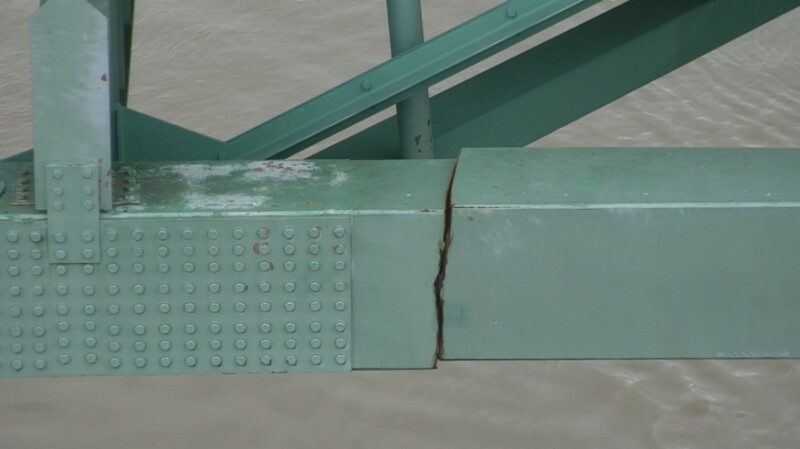On Tuesday, an inspection of an important bridge connecting Arkansas and Tennessee over the Mississippi River at Memphis revealed a serious crack in a beam. While the damage is being assessed, officials moved quickly to close the bridge to vehicle traffic and the river to navigation, idling nearly 230 barges with no place to go.
The next day, President Joe Biden held a meeting with congressional leaders to talk about the importance of shoring up the nation’s infrastructure and push his controversial plan to spend $2.3 trillion on infrastructure improvements and aid to families. There wasn’t much progress, however, as Republicans repeated that they would not support the tax increases the president seeks to fund such a program.
The timing was surely a coincidence, as the president probably hadn’t yet heard about the problems in Memphis and had planned the meeting before the crack was discovered.
But there is a message here, as the closure of the I-40 bridge, called the Hernando de Soto Bridge, offers yet another poignant example of the pressing need to fix the country’s outdated, crumbling and in many cases unsafe roads, bridges and other major transportation networks on which we as drivers and consumers depend.
It all strikes back to the quality of the nation’s supply chain as to whether it is up to the task of responding to the growing demands of the national economy, especially as economic drivers have shifted due to the pandemic and the country limps back to recovery.
From the looks of things, however, the supply chain and the infrastructure on which it depends aren’t performing well at all. This winter’s power outages in Texas, this week’s cybersecurity breach of a major pipeline causing gasoline shortages along the East Coast and now the I-40 bridge closure are just a few examples.
“The national and global supply chain is currently under tremendous stress. The seismic shift in consumer spending over the past 12-15 months from services to goods has imposed historic demand on manufacturing and production and the supply chain that accommodates them,” said Mike Steenhoek, executive director of the Soybean Transportation Coalition, whose members move most of their product on the rivers.
“Every link (ports, railroads, trucking, maritime shipping) in the supply chain is under stress. When a link in the supply chain — barge in this case — experiences a shutdown or delay within the context of an overly subscribed transportation network, challenges can easily compound.”
Referencing recent Agriculture Department data, Steenhoek said 438 barges moved down the Mississippi River in route to export facilities in the Gulf of Mexico during the week ending May 1. Most were loaded in areas north of Memphis, which has the nation’s fifth largest inland port, and must pass beneath the I-40 bridge.
“It is reasonable to assume hundreds of barges of U.S. grain will be negatively impacted by the closure depending on its duration,” he said. “Because U.S. soybeans are primarily exported between the months of September and February, other commodities, particularly corn, will bear more of the brunt of the barge traffic suspension, but soybeans will clearly be impacted as well.”
Barge operators are used to river traffic disruptions due to high water, hurricanes, droughts, floods and lock and dam outages or construction. But with the new disruption to navigation in Memphis, they are reminded just how interconnected their work is to other transportation modes and how a defect in a bridge can also shut them down as well.
Very often it takes catastrophes to spur major political decision-making in Washington and elsewhere. Officials in Tennessee will be determining whether the bridge is structurally sound enough to allow barge traffic to resume — but there’s no timetable yet for a decision. Let’s hope that the I-40 bridge spotlights the urgency for a national infrastructure fix and helps forge a bipartisan strategy for making much-overdue improvements and a plan on how best to pay for them.




